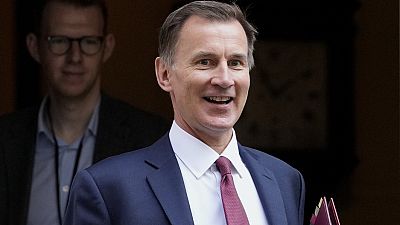Average UK households are £8,300 poorer than their counterparts in countries like France, Germany and the Netherlands, according to a new report by the Resolution Foundation and LSE.
The UK’s productivity rate is half of that seen in other advanced economies and wages have subsequently flatlined, meaning that workers are losing an average of £10,700 a year.
The report, published on Monday, also estimates that nine million younger employees have never worked in an economy with sustained average wage rises.
“Brexit, Covid-19 and the cost-of-living crisis have tested an economy already under strain,” said Alex Beer, head of portfolio development at the Nuffield Foundation.
Current inequalities are particularly affecting living standards for low-to-middle-income individuals as the nation has failed to recover from the 2008 financial crisis.
Whilst the UK was closing the productivity gap with countries like France, Germany and the US during the 1990s and early 2000s, this trend has been inversed since the markets crashed.
The Resolution Foundation and LSE say the typical UK household is now £8,300 poorer than their peers in European countries like France and Germany.
In light of this disparity, the new report states the government's current fiscal plan is “not serious”.
Researchers propose that the UK's living standards could be improved by boosting public investment to 3% of GDP and by building on the nation’s “strengths as a services superpower”.
At the moment, the Conservative Party plans to cut investment to 1.8% of GDP by 2028/2029.
Boosting the UK’s 'second cities’
UK Chancellor Jeremy Hunt and leader of the Labour opposition party Keir Starmer are speaking at a Resolution Foundation event today to launch the report, the findings of which could shape government agenda.
One of the key recommendations is that more competitive pressure should be placed on British businesses by granting tax breaks to young rather than small firms.
This means that unsuccessful companies are more likely to crumble and leave room for successful ventures.
The paper also encourages the government to allocate more money to the big cities outside of London.
“Birmingham and Greater Manchester require huge investment in their public transport networks and housing if they are to attract advanced firms and skilled workers,” it states.
“With 69 per cent of the UK population living in cities and their hinterlands, millions would benefit.”
Other recommendations include improvements to Statutory Sick Pay (which can leave the ill on just £44 a week) and better conditions for workers on rotating shifts.
The report also advocates for a tax hike, although rates are currently sitting at their highest level since the 1940s.
This goes against the approach adopted by Chancellor Jeremy Hunt, who recently announced a raft of tax cuts in his Autumn Statement.
Political reactions
In Monday’s event at the Resolution Foundation, Labour leader Starmer criticised the Conservative Party’s handling of the economy.
“This parliament is on track to be the first in modern history where living standards in this country have actually contracted," he said.
"Household income growth is down by 3.1% and Britain is worse off," he added.
Ahead of a predicted election next year, the Labour government wants to attract voters by offering the country an alternative economic plan.
In his speech, Jeremy Hunt nonetheless said his party hopes to reverse the forecasted decline in public investment, arguing there is some room for optimism.
“The sectors that are going to grow the fastest this century are the sectors we are doing really well in.”
He added, “Our strength is innovation industries and that is where, if we are focused, this Conservative administration can give the country a world-beating technology sector, the world's next Silicon Valley.”



